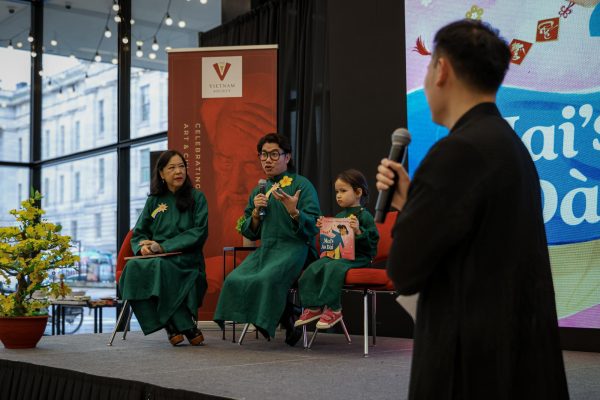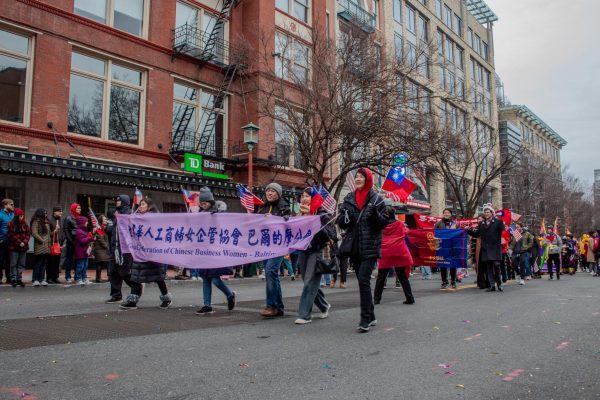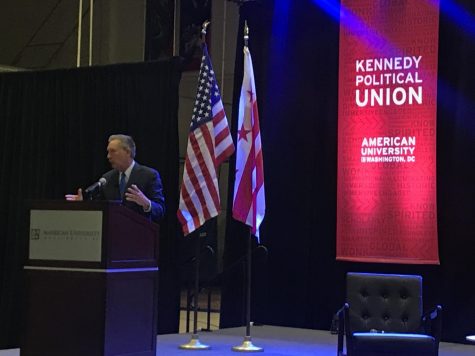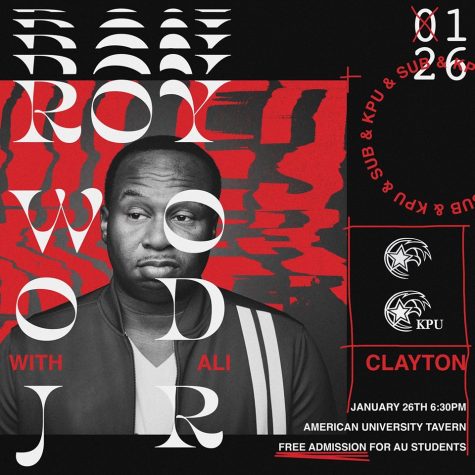Changes in Mennonites’ Apolitical Culture: God Before Government
The Mennonite community in the United States hasn’t been known to line up by the hundreds outside polling stations, hold picket signs protesting unjust laws or advocate for a certain candidate. Though they have traditionally stayed within their community, voluntarily withdrawn from the rough and tumble of American politics, this stereotype doesn’t always fit the younger generation.
“I wouldn’t necessarily say that I’m apolitical,” said Jacob Leaman, a Mennonite and junior at American University. However, Leaman explains that the group has historically been labeled “un-American” and imprisoned for exercising conscientious objection.
For the Mennonites, the laws of God are different from the laws of man, with the former trumping the latter. Though the separation of church and state is written into the Constitution, for Mennonites it is religious law that takes priority, a choice that has led to backlash. Mennonites, including members of Leaman’s community, were jailed for rejecting the draft during World War I, and faced public outrage when they refused to fight in the Civil War. Other Christian denominations allow participation in war, but for Mennonites, pacifism is the direct response to the Sixth Commandment: “Thou shalt not kill.”
“If you are forced between the two choices, if you had to pick what the Christian belief says you should do and what the state is telling you to do, you’d probably pick the first one,” Leaman said.
Traditionally, Mennonites have also refrained from voting. Jake Short, administrative assistant at Hyattsville Mennonite Church, explains that many Mennonites refuse to vote because “their consciences would be compromised too much one way or another.” To vote Republican, for example, would mean to vote against pro-choice legislation. It would also a mean a vote in favor of mass deportation when Mennonites tend to advocate for immigration reform, including amnesty.
Like any other community, Mennonites have changed throughout time.
“I think just in general, this generation is not really into the church as an institution as much, and I think that trend carries over to Mennonite communities as well,” Leaman said.
He votes, as do many other members of his particular church. He says that some even participate in multiple parts of the political process. They endorse candidates, write letters to congressmen and debate the best political course of action. However, Leaman qualifies that his church is more progressive than many other Mennonite churches, with members tending to identify along the political left.
Short explains that the Mennonite faith is quite diverse, with each congregation having its own set of rules.
“Mennonites are very local in terms of polity, and there isn’t a lot of top-down hierarchy,” he said. Multiple churches can group together into conferences, with a bishop overseeing each one. The bishop of one conference can decide that the members of his community cannot participate in politics, while the bishop for another might decide that his conference can.
“Not to generalize too much, but urban congregations would probably have more politically active members than not,” Short said. Pastors and bishops must meet the needs of their community and provide them guidance in faith. With cities often holding more diverse populations, leaders may try to respond to particular issues within their community, like police brutality or the rights of undocumented immigrants.
Even so, there is still one part of the political process that the majority of Mennonites have shied away from: running for office.
“Personally, I don’t think I could run for president hypothetically speaking, and I don’t think other Mennonites would be terribly comfortable with that either, just because there’s a lot of decisions that would be necessary to make,” Leaman said. While it isn’t something he believes would be frowned upon, he also doesn’t believe it would be encouraged. He says that some of the decisions government officials must make would compromise strongly held beliefs, which many Mennonites see as black-and-white issues.
“I think that Mennonites are a little more absolutist in terms of a right and wrong decision, versus some people see it more as a spectrum, so compromising their beliefs, even slightly, would probably make them uncomfortable.”

A Senior majoring in International Studies and Economics, my areas of interest include Latinx issues, international migration, identity, and ethics. I...











